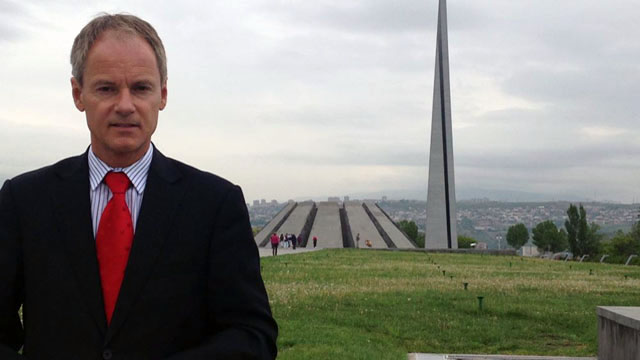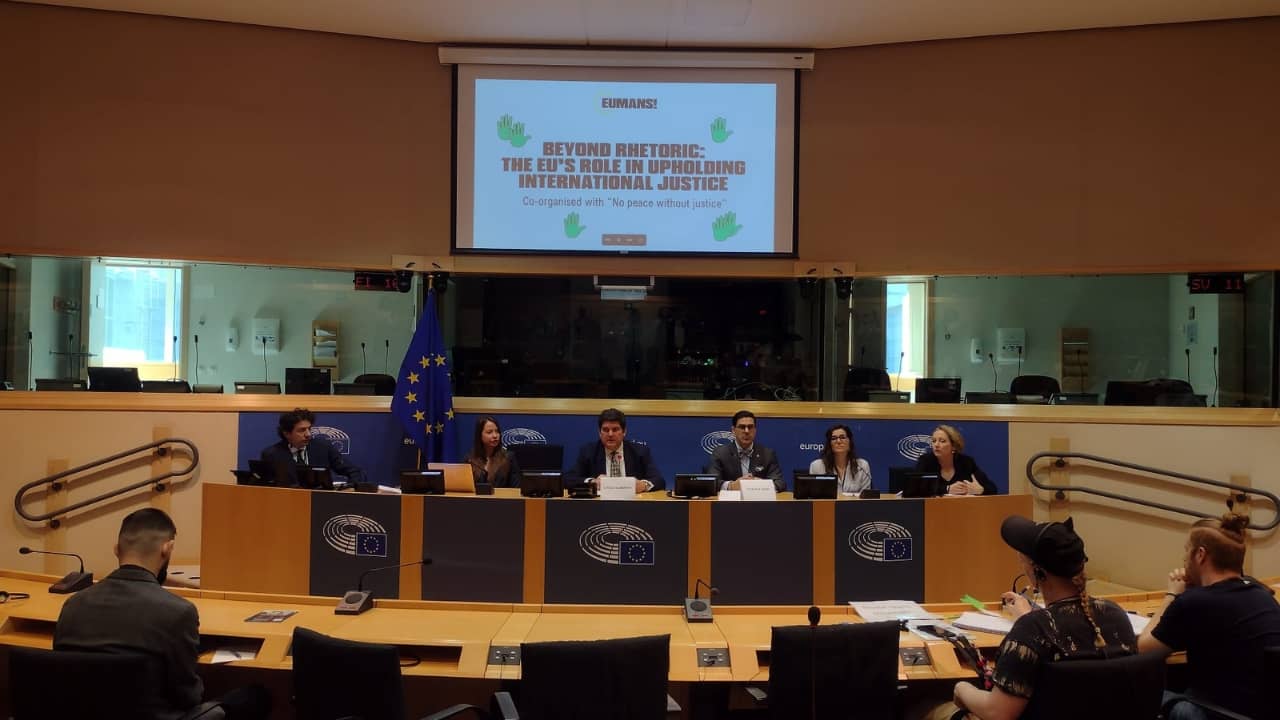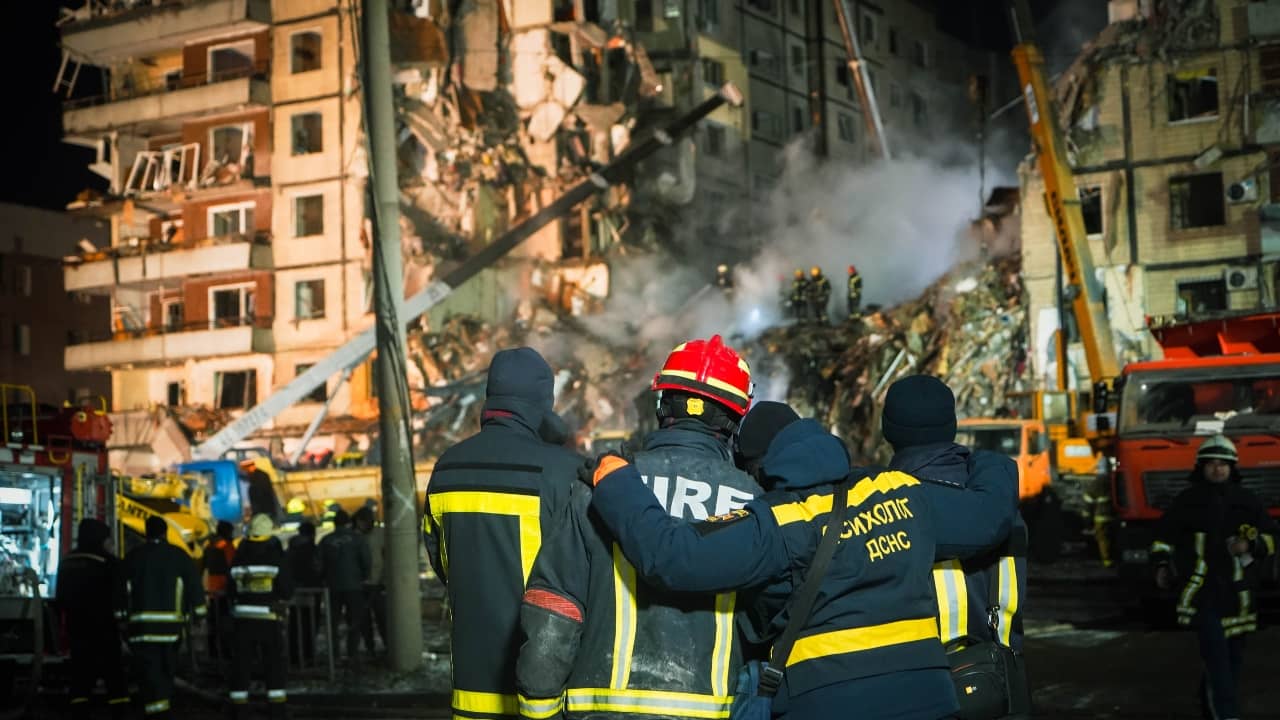
The PGA Secretariat has the pleasure of highlighting this month’s work on the ratification of the Rome Statute by Armenia, by 10 questions to Mr. Harry van Bommel, MP, The Netherlands
1. Why was it important for you to visit Armenia in the beginning of May?[1]
“Armenia joined the Eurasian Economic Union this year, the Russian equivalent of the European Union. This came as a surprise for many Europeans, for the EU and Armenia are also working towards Association Agreements. The Russian pressure on the countries bordering Europe has grown substantially over the past years and has even sometimes lead to war, e.g. in Georgia and Ukraine. We have to prevent similar struggle over Armenia, therefore acquiring knowledge and contacts is necessary to ensure we are not talking about but with the Armenians. It is time for Europe to strengthen its relations with Armenia, but not in an exclusive way. The recent Russian travel ban for parliamentarians is a dangerous escalation of already tense relations, which calls for strengthening contacts with colleague-parliamentarians in Armenia on the importance of ensuring stability for Europe. I look forward to my upcoming follow-up visit to this country.”
2. During your visit in Armenia in May, did you have a chance to discuss the ratification by Armenia of the Rome Statute? What was their position on this matter? Where obstacles for ratification identified? If so, how do you think PGA can contribute to overcome such obstacles?
“Yes, I’ve managed to introduce the topic of Rome Statute ratification by Armenia at several occasions during the visit; in my conversations with the Speaker of the Armenian parliament, in my discussions with other parliamentarians and with the Minister of Foreign Affairs. For me, Rome Statute ratification is a good option for Armenia to give meaning to the ‘never again’ message that was shared during the commemoration events I attended for the victims of the Armenian genocide 100 years ago. Ratification of the ICC system is viewed by the Armenian colleagues though as part of a larger package of constitutional reform, which is scheduled to be subject to a public referendum in 2016. PGA has a duty here to equip its members to engage and inform other MPs on this topic via peer-to-peer exchange, for this is the most effective way to promote the global fight against impunity.”
3. In the beginning of May, the Parliament of the Netherlands held debates on the recognition of the genocide, can you tell us a bit more about these debates and their outcome?[2]
“The Armenian genocide was recognized as such by the Dutch Parliament in 2004, but not by our government. The parliament therefore urged the Dutch government to include this topic in its contacts with the Turkish government. During the debate the government was urged to recognize the mass killings of Armenians in 1915 as a genocide, and to attend the 100th anniversary of the genocide commemorations on 24 April, but the parliament did unfortunately not achieve its goal.”
4. How long have you been a PGA member? And what inspired you to join the network?
“The PGA Campaign on the International Criminal Court triggered me in 2010 to join this network, next to my membership of other parliamentary networks. The incoming visits of parliamentary delegations guided towards the ICC and other international organizations by the PGA Secretariat in The Hague, furthermore provides me with the opportunity of meeting with a wide range of parliamentarians from all over the world, not limited to the parliamentarians that are members of their parliament’s foreign affairs committee, which has allowed me to learn from colleagues and to exchange knowledge in topics of international justice.”
5. What do you appreciate/benefit from the most from being a PGA member?
“Direct engagement with colleague-parliamentarians as a constant reminder of the responsibility parliamentarians have to move global issues forward. The name of PGA ‘global action’ says it all: we can reinforce parliamentary action by exchanging information on topics like the abolition of the death penalty, the fight against impunity through the ICC. And when parliamentarians run into problems, simply for doing their job, we jointly express our concerns out of international solidarity. In The Netherlands we have many checks and balances that protect parliamentarians against harassment and intimidation, but in many countries this is not the case. It is my duty to support my colleagues from this safe part of the world.”
6. How has being a member of PGA helped you advocate for Human Rights and the Rule of Law in your home country?
“In Europe we might consider the abolition of the death penalty as a fact, but recently, in Hungary, president Orban suggested to re-introduce it! This shows us that regression is possible, also in this part of the world. Therefore we cannot be complacent and have to be alert to ensure current values are being maintained. Also, The Netherlands is active military in Iraq and other parts of the world. Through my PGA membership and exchange with other parliamentarians from around the world, I improve my information position, which allows me to monitor better whether military intervention supported by my country’s government is still part of the solution and not part of the problem, as it sometimes is.”
7. What would you consider is your biggest accomplishment regarding your work as an advocate for Human Rights and the Rule of Law in your home country?
“My party, the Socialist Party, is a staunch defender of state-subsidized legal assistance for people with low incomes, a service the Dutch government has been trying to cut back heavily. We will have to continue this fight, for access to justice should be available for all citizens and should not be dependent on the size of your bank account.”
8. What would you like to achieve in the near future in this field? And how do you plan to do so?
“Recognition of genocide is known to have a deterrent effect, therefore I’m working on the recognition of the genocide on the Kurdish people. This is the same reason for my parliamentary advocacy work on the recognition of the Armenian genocide by the Dutch government. Furthermore we are closely monitoring the relations of the Dutch government and business community with countries in which human rights are being violated, like e.g. Saudi Arabia, and appealing to the Dutch government to include human rights violations in their talking points with such governments.”
9. What do you believe are some of the major challenges currently facing the ICC? Could you think and give examples of ways to overcome such challenges? How can PGA contribute to these efforts?
“The biggest challenge of the ICC in my view is the ratification by super-powers like the USA and China. Secondly the perceived Africa bias of the Court has to be addressed: This is not a Court in which white, Western prosecutors and judges investigate and sentence only black, African persons. The PGA network of parliamentarians can play an instrumental role in addressing these challenges: When governments are not actively pursuing Rome Statute ratification or implementation, parliamentary diplomacy can provide the necessary leverage. Parliamentarians of today can become part of the government tomorrow, therefore knowledge and sensitization on the elaboration of the jurisdiction of the ICC is valuable. The power of peer-to-peer exchange between parliamentarians is much stronger than just reading a book or watching a movie about international crimes. I had the opportunity to join a PGA meeting in Central African Republic, and meet with fellow-parliamentarians from this war-torn country, their live testimonies have impressed me more than reading any report could have done.”
10. Do you think Parliamentarians (in your country) have the necessary knowledge to understand the importance of the universality and effectiveness of the Rome Statute? How about the Kampala Amendments?
“Yes, I do in fact think there is enough knowledge available on these topics in the parliament. We do have one problem in The Netherlands, though: over the past decade, we’ve encountered an increasing pace in the turnover of parliaments and its parliamentarians, some MPs lasted only in the Parliament for one or two years, due to many snap elections. I’m a parliamentarian for 17 years now, but for newcomers, international justice might not be the first topic they will invest time and attention to, they need more time to gain experience and to be effective.”
[1] More info on his visit : http://international.sp.nl/news/2015/05/eu-must-not-turn-its-back-on-armenia, last accessed 20 May, 2015.
[2] Available at http://news.am/eng/news/266363.html last accessed 20 May, 2015.




